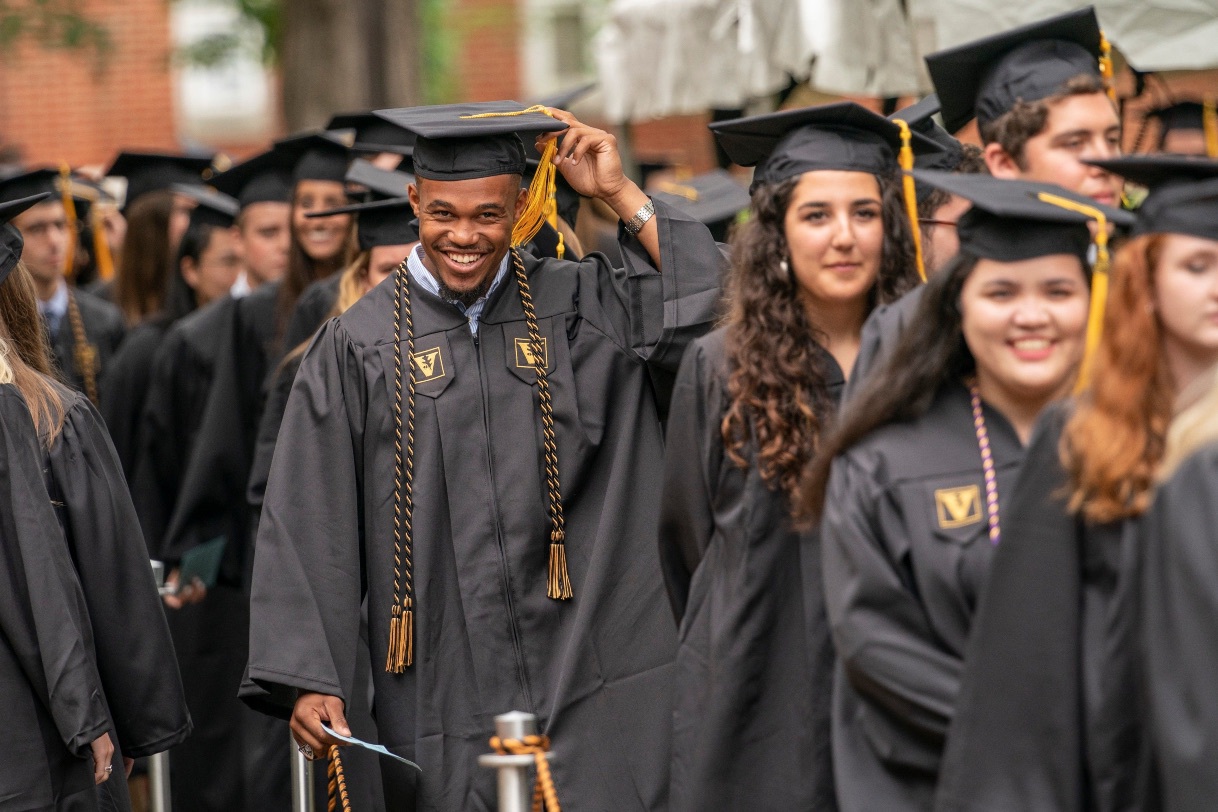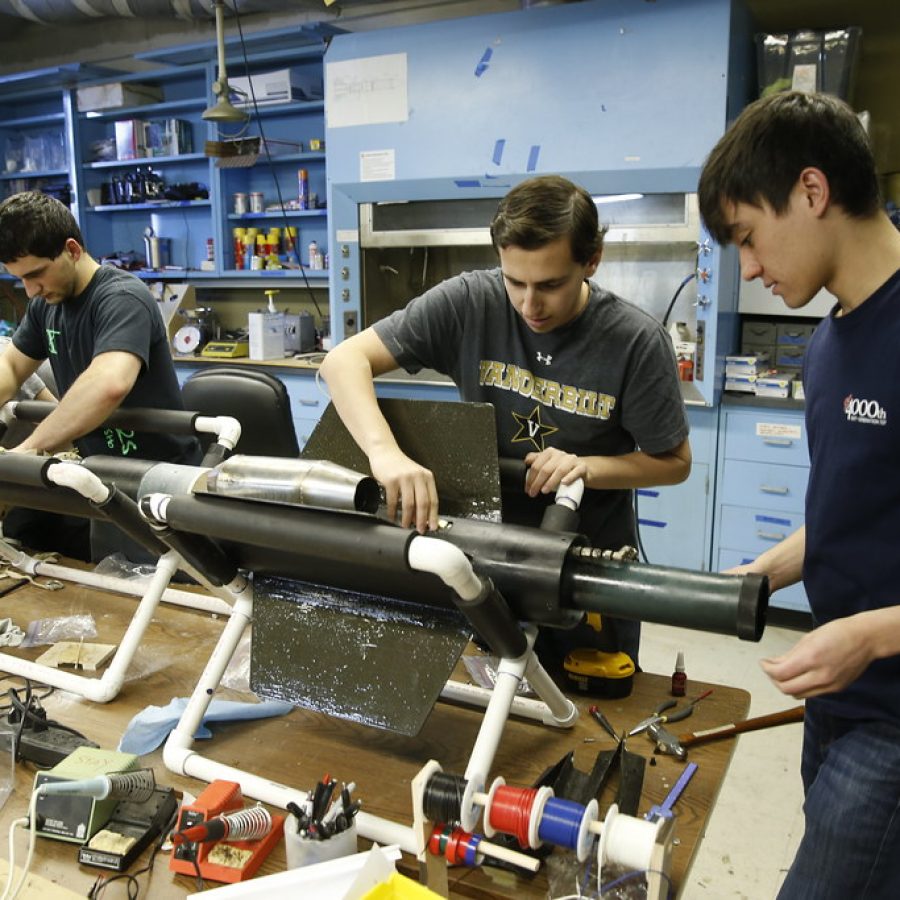Research at Vanderbilt draws on the belief that great breakthroughs happen when different ideas, disciplines and areas of expertise come together.
1
Schools & Colleges
Vanderbilt is among a unique set of independent universities that offers both a high-quality undergraduate program and a full range of graduate and professional degree programs. Its world-class faculty consists of more than 2,400 full-time members, and the diverse student body is more than 12,000 strong across 11 schools and colleges.

2
Research, Centers & Institutes
In addition to its traditional schools and departments, Vanderbilt supports numerous centers and facilities to promote interdisciplinary research and collaboration, such as the ten trans-institutional centers within the School of Medicine Basic Sciences. These centers—including the Vanderbilt Brain Institute and the Warren Center for Neuroscience Drug Discovery—provide a vibrant research and training environment through academic expertise spanning a wide range of specialization.
University-wide interdisciplinary centers and institutes include the Wond’ry, Vanderbilt's Innovation Center, the Vanderbilt Institute for Surgery and Engineering, the Center for Digital Humanities and the Data Science Institute, among many others.

“The role of a university is to help its people reach their full potential. This potential is maximized not only through research and academics, but also through acquiring and applying knowledge as broadly as possible.”

3
Immersion Vanderbilt
Undergraduate academics also are deepened and expanded through Immersion Vanderbilt, an experiential program and degree requirement for all first-year students. Guided by a faculty steering committee, Immersion Vanderbilt is designed to provide all undergraduate students with empowering learning opportunities beyond the classroom from study abroad programs and field research to creative projects and professional exposure. For each student, the Immersion Vanderbilt project begins with an exploratory phase and the selection of a faculty adviser, and it ultimately culminates in a final project.
Examples of recent Immersion Vanderbilt projects include:
- Conducting economic development research through the National Science Foundation’s Research Experience for Undergraduates program
- Creating case studies about theater performances and directing a small-scale production
- Exploring the intersection of law and art history through an internship at the Center for Art Law in New York, New York
- Developing a report about social entrepreneurship in Southeast Asia while traveling throughout Singapore
- Studying the impact of popular music on social change and the origins of hip-hop through a semester-long study abroad program in Senegal

4
Global Education
For many Vanderbilt students, study abroad programs provide an enriching counterpoint to their time in Nashville. The Office of Global Education is committed to offering hundreds of accessible and academically rigorous programs, regardless of a student’s financial situation or chosen field of study. From studying ancient civilizations in Athens to researching development and social change in the Himalayas or examining community health systems in South Africa, the opportunities are as diverse as they are transformative.
Vanderbilt is also committed to global research and discovery on a broader scale. In addition to partnering with international programs for undergraduate, graduate and professional students, the university hosts global institutes, including the Center for Latin American Studies, the W.T. Bandy Center for Baudelaire and Modern French Studies and the Institute for Global Health through the Vanderbilt University Medical Center. Along with global online learning, faculty research opportunities and other programs sponsored through Global VU, these specific programs reinforce Vanderbilt’s commitment to improving lives around the world—at present and for generations to come.


